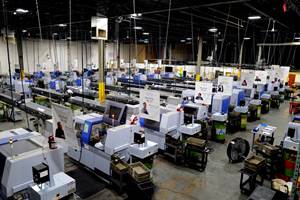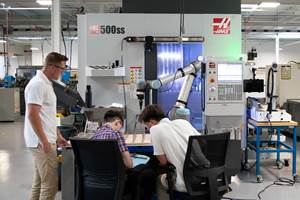In-House CNCs Help Automotive Shop Gain Manufacturing Control
By investing in two advanced CNC machine tools from Haas Automation Inc. and bringing chip-making in house, Neal Technologies was able to grow its business.
Share





Hwacheon Machinery America, Inc.
Featured Content
View More


Takumi USA
Featured Content
View More
Most people wouldn’t buy a CNC machine tool without understanding the first thing about setting it up or operating it; however, Ken and Gene Neal aren’t like most people. They purchased two of the most advanced CNC machine tools available from Haas Automation Inc. (Oxnard, California) before they even had a machine shop. Yet, their forward-looking mindset, along with the new Haas machines, gave them the ability to develop and manufacture products that otherwise would have gone unrealized.
The brothers are co-owners of Neal Technologies Inc. (Mesa, Arizona), which has marketed a line of automotive components under the brand name Bullet Proof Diesel since 2005. Before that, Ken founded an automotive repair business called Elite Mobile Diagnostics, which Gene joined in 2002, and the company became a retail repair shop. The brothers noticed they were making repeat repairs for customers whose OEM parts were not lasting long, Ken says. Specifically, many of the repairs were made on a popular 6-liter diesel engine. There, the brothers saw an opportunity—to develop their own replacements parts that would work better and last longer. This part became the gateway to Bullet Proof Diesel.
One of the first products developed by the new company was an exhaust gas recirculation (EGR) cooler. The component took off, and the Neals sold upwards of 80 units per day. They quickly branched out into different vehicle models, and other failure-prone OEM components, and Bullet Proof soon boasted a catalog with hundreds of part numbers. These products include a variety of pumps, exhaust systems, oil coolers and electronics packages, all of which are designed as alternatives to standard factory components.
To provide such a selection of parts, the company needed to make chips, but they ran into a big problem: They were having a hard time finding subcontractors.
“It was amazing,” Ken says. “Here we were, a very successful growing business, and we had the hardest time finding a machine shop that would work with us.”
Luckily, they found Kelly Cowen, owner of Performance Design and Machine Inc., a small shop on the other side of Mesa, Arizona. Mr. Cowen not only became a valuable source for many of Bullet Proof Diesel’s machined components, but he also eventually helped the Neals make the leap into purchasing their own Haas equipment.
“We reached the point where we wanted more control over our own destiny,” Ken says. “And even though Mr. Cowen was doing a great job for us, we needed the capability to do our own in-house prototyping.”
Mr. Cowen worked with the brothers on machine selection, and offered advice on which options to purchase. Eventually, the Neals bought an ST-30Y lathe with a Y axis and live tooling, and a five-axis-capable VF-2YT machining center from Haas. To an outsider, the choice of two advanced machine tools might seem like overkill, but Mr. Cowen knew the VF-2YT’s five-axis milling capabilities would help with prototype development as well as any future complex machining needs. Also, the ST-30Y lathe’s Y axis and live tooling would eliminate secondary operations, reduce fixturing needs and streamline the manufacturing process.
Mr. Cowen’s involvement with Bullet Proof didn’t end with the arrival of the new machines. As Gene explains, “We had an engineer at the time who knew just enough to be dangerous about G code and machine operation. When he ran into trouble, Mr. Cowen could come over, take a look at what we were trying to do, then more often than not, he’d shake his head and set it up for us.”
When the engineer left the company, the Neals were left with a pair of expensive paperweights sitting idle on the shop floor. They invited Mr. Cowen over for another visit—one that turned out to be permanent. Performance Design and Machine’s four pieces of Haas equipment—an SL-20 lathe, VF-2 and VF-2SS machining centers, and a VF-2YT machining center with 15,000-rpm spindle—joined forces with Neal Technologies, and the two companies merged in 2013. Since the merge, the company has continued to grow, and today more than 30 employees work in the 30,000-square-foot facility.
A side benefit of now having a full-fledged machine shop is that the company is able to quickly prototype different design ideas and bring products to market faster. For example, the Neals recently developed a new design for a heat exchanger. Through their extensive work with engine cooling systems, the brothers learned about heat transfer and exchange mechanisms, then patented a design that eliminates the thermal cycling problems seen in other heat exchangers.
Mr. Cowen says that although he’s been delivering prototypes for years, this project was much easier on-site since Ken was able to work with the engineers to get the different components drawn. From there, Mr. Cowen was able to start machining right away. He designed the fixture and programmed the part, assigning it to one of the machine operators. At the old shop, the process usually took several days. Now, projects like this can be turned around the same day.
Related Content
4 Commonly Misapplied CNC Features
Misapplication of these important CNC features will result in wasted time, wasted or duplicated effort and/or wasted material.
Read MoreInside the Premium Machine Shop Making Fasteners
AMPG can’t help but take risks — its management doesn’t know how to run machines. But these risks have enabled it to become a runaway success in its market.
Read MoreInverting Turning and Five-Axis Milling at Famar
Automation is only the tip of the iceberg for Famar, which also provides multitasking options for its vertical lathes and horizontal five-axis machine tools.
Read MoreCNC Machine Shop Honored for Automation, Machine Monitoring
From cobots to machine monitoring, this Top Shop honoree shows that machining technology is about more than the machine tool.
Read MoreRead Next
Setting Up the Building Blocks for a Digital Factory
Woodward Inc. spent over a year developing an API to connect machines to its digital factory. Caron Engineering’s MiConnect has cut most of this process while also granting the shop greater access to machine information.
Read MoreRegistration Now Open for the Precision Machining Technology Show (PMTS) 2025
The precision machining industry’s premier event returns to Cleveland, OH, April 1-3.
Read MoreBuilding Out a Foundation for Student Machinists
Autodesk and Haas have teamed up to produce an introductory course for students that covers the basics of CAD, CAM and CNC while providing them with a portfolio part.
Read More

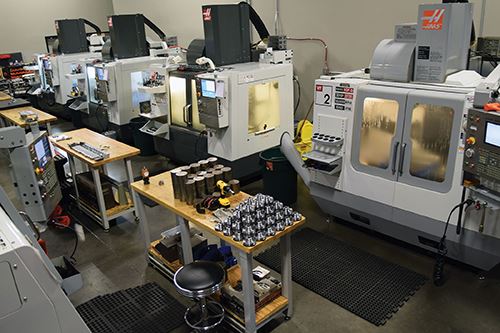
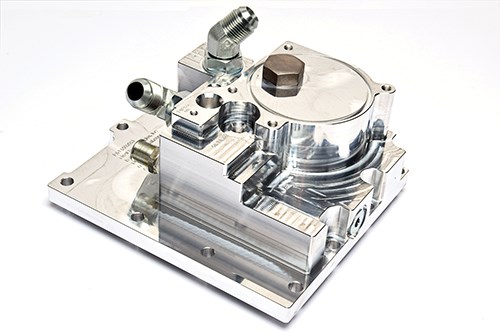
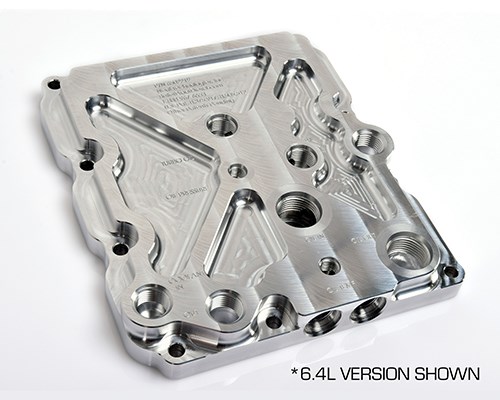
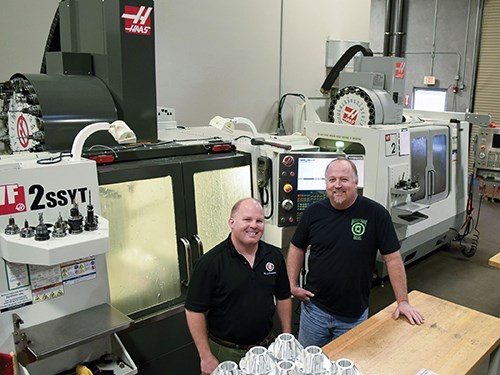
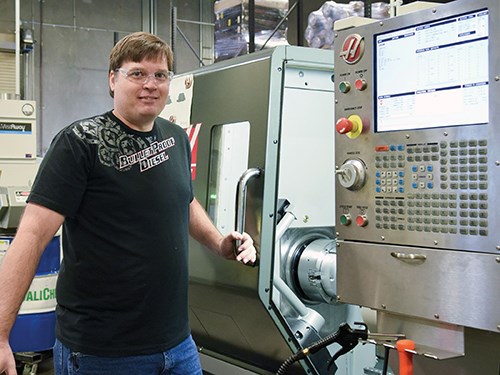





























.jpg;maxWidth=300;quality=90)









.jpg;maxWidth=300;quality=90)

